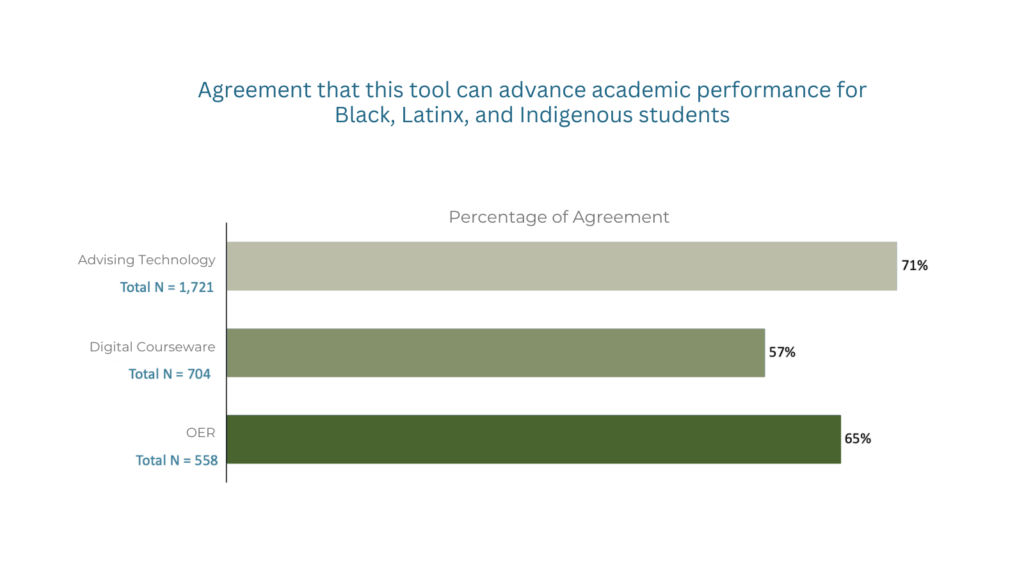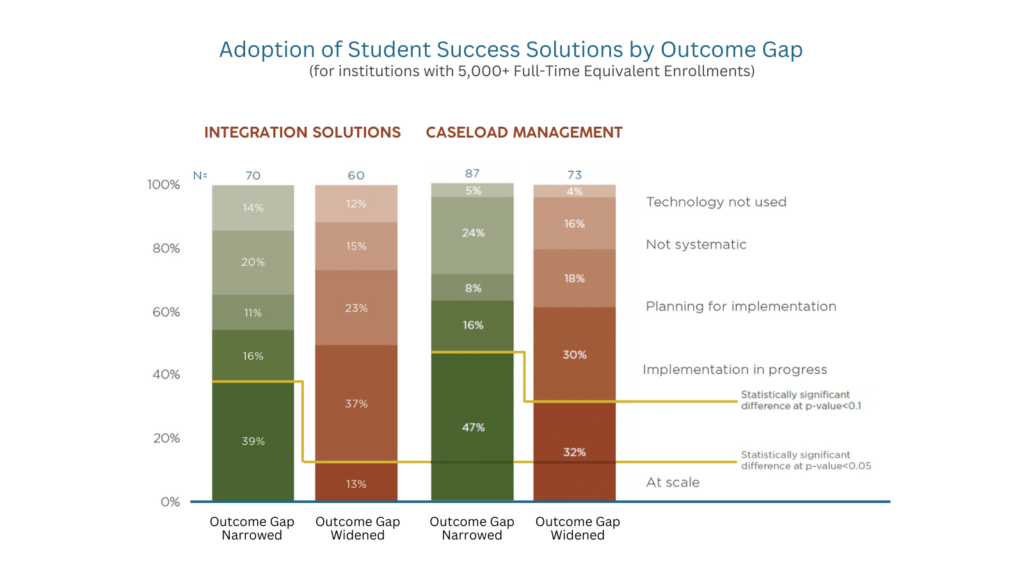The Swerve: K-12’s Age of Transformation
October 22, 2024 BlogOne of the most memorable books I taught as a World History teacher was Stephen Greenblatt’s The Swerve….
Over the past few weeks, we have enjoyed seeing many of you in person at an assortment of recent in person events including EDUCAUSE, OLC Accelerate, and the UERU National Conference.
It is energizing to experience in-person conferences again; however, looking across these convenings, session topics and participation, we realized that collectively as a field, we still have more to do to center equity in the development of educational technology. Every year, events like these bring together important players needed to drive towards concrete solutions and partnerships to support more equitable student experiences and outcomes. As members of the education ecosystem, we all have a role to play in achieving equitable outcomes for students and in considering how technology can be designed and implemented accordingly.
At each of the events our team has been to recently, equity was on the agenda. In a featured session at EDUCAUSE, “Beyond Talk on Digital Equity: How EdTech Companies and Colleges Can Partner on Innovative Strategies to Serve Historically Excluded Communities,” a panel laid out the historical and ongoing challenges for the education technology ecosystem regarding improving outcomes for Black, Hispanic, and Indigenous (BHI) student populations. The challenges discussed were as follows:
These themes were echoed in a session at OLC Accelerate that brought together Tribal Colleges, HBCUs, and minority-serving institution leaders to discuss “Strategically Building Community” in digital spaces. This group emphasized the need for EdTech providers to work with and listen to institutions that serve large populations of BHI learners, in service of designing tools that support the sense of inclusion and belonging these institutions provide to students.
Example: One example of the result of listening to student and institutional needs is the recent Lumen Learning (a provider of digital teaching and learning materials) decision to integrate digital communities and peer collaboration tools into statistics courseware via a partnership with InScribe. This product decision was made as a result of extensive user research with BHI students and faculty.
In 2022, our team published insights on advising and digital learning practices and policies, with a focus on the role of technology implementation to support closing gaps in racial/ethnic graduation rates. As our Driving Toward a Degree and Time for Class work found, there is a belief across institution types that this can improve outcomes for historically underserved students and institutions – especially in the advising space.

But how do we begin to unlock EdTech’s potential to improve outcomes? A few lessons from our work include:

These are just some of many avenues of our ongoing work to bring EdTech and institutions together in service to improving outcomes for BHI students.
Both institutional and vendor perspectives are needed to enable a better understanding of strong partnerships to close equity gaps. We are embarking on national research in 2023 to continue to close knowledge gaps in higher education ed tech and inform continuous improvement.
Discussions around how to address inequity in educational outcomes, how to engage historically marginalized student populations, how to leverage technology to connect students to resources, and build trust between EdTech vendors and MSIs, as well as Black and Brown communities are needed to make real progress towards more equitable outcomes.
If you are an institution looking to better understand technology and how it can support a more equitable learning experience or holistic student supports, let us know. If you are a technology or service provider seeking to better understand how you can design products that incorporate the student and instructor voice, let us know.